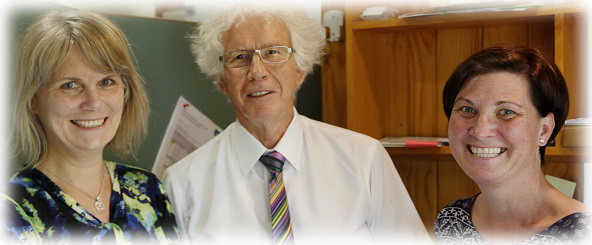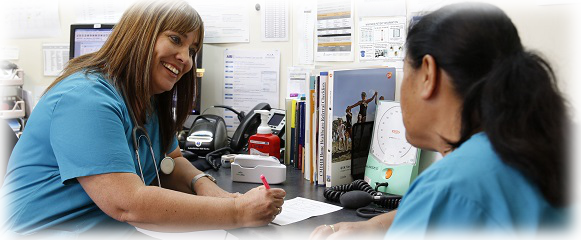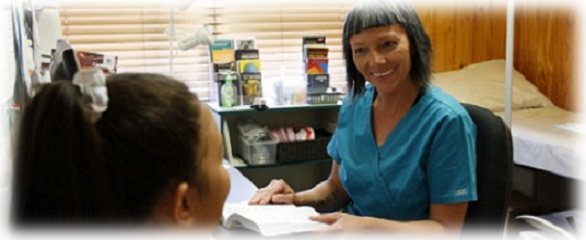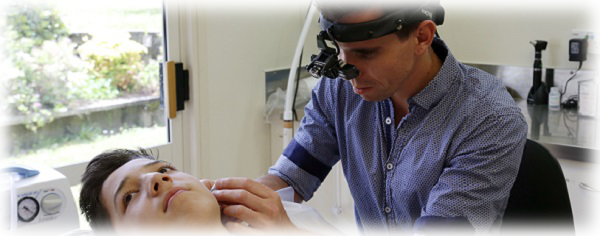March Newsletter
2013
Hi again to everyone in the Millhouse Community and to our other readers
This has been an Indian summer but the cooler nights remind me that winter is just around the corner. Thanks to all those who used our Facebook page to farewell dr Else; she appreciated all the good will.
Flu Vaccination
FREE flu vaccination is now available for over 65's and for anyone with chronic illness - heart disease, asthma, kidney disease and diabetes. Those not eligible can pay $25.00. Please book with reception to see the nurse.
>>>Learn more about this...
Vitamin D and Winter
It has been a great summer to renew the body's stores of vitamin D but consider supplementing during winter to boost your immune response against the cold and flu. Vitamin D is probably best taken daily. Vitamin D drops for children can be purchased from reception. For adults I suggest the 50,000 unit Cholecalciferol tablets which can be obtained on prescription; I recommend 1 tablet every second week during the winter months.
>>>Learn more about this...
E-appointments Coming.
We will soon be informing you about E-appointments and accessing this convenient service through the website.
Newsletters
An archive of all past newsletters is available on line and the website can be searched for specific information.
>>>Learn more about this...
In this issue...
Flu Vaccinations free to some, otherwise $25.00
Vitamin D for Winter
Online Appointments coming soon
Newsletter Archives
This month Dr Ric writes about
the role of Ketones
in Brain Disease
Dr Ric writes:
Ketones in Brain Disease including Alzheimer's Dementia.
Ketogenic Diet and Epilepsy
Last year I received a promotional video that honoured three-times Oscar winner Meryl Streep for her role in the film 'First Do No Harm'. Some of you may remember this 1997 television movie where Streep portrays a mother whose child suffers from severe epilepsy which is unresponsive to treatment. The parents do not accept that "nothing can be done" and begin a quest to find a cure for their son. They discover medical evidence that suggests a low carbohydrate diet might be helpful, but their doctors are extremely reluctant to endorse this action. Finally they decide to introduce changes to their son's diet which bring about immediate remission from his brain seizures.
The film mirrors the true story of Charlie Abraham, the movie producer's own son, who had severe intractable epilepsy which was unresponsive to all medications and brain surgery, but who at the age of 20 months was amazingly healed by the introduction of a ketogenic diet. In 1994 the Abraham family established the Charlie Foundation
to raise community awareness, and to educate doctors and dietitians in using a ketogenic diet to treat epilepsy, particularly where anticonvulsant treatment has failed.
Over the last 90 years the medical literature has reported success in using a ketogenic diet, a low- carbohydrate, high-fat and -protein regime, in treating epilepsy, but doctors have been - and still are - reluctant to recommend this therapy to patients, particularly where medication has failed. From multiple studies we now know that slightly more than half the children on a ketogenic diet will have a 50 percent improvement in their seizures, one-third will have greater than 90 percent improvement, and 10–15 percent will be seizure-free.
I remember well a woman with uncontrollable epilepsy, with depression and gluten intolerance, whose seizures stopped and her mental state improved when she maintained her gluten-free ketogenic diet. The success in using a ketogenic diet in epilepsy does require the commitment, determination and faith of the entire family.
Ketogenic Diet and Alzheimer Disease
Dr Julian Whittaker's newsletter Health & Healing October 2009 tells a remarkable story of a middle-aged man who suffered from severe Alzheimer's Disease (AD) and then dramatically improved on a ketogenic diet. In 2011 Dr Mary Newport, a neonatal paediatrician, published the account of her husband's devastating neurological condition and his journey of change.
[Before highlighting Steve Newport's story, let me say that conventional therapies for Alzheimer's dementia may bring only slight short-term improvement, and show little promise in restoring neurological function or halting disease progression.]
Steve Newport, an accountant, probably began having memory problems as early as his teenage years (this may be a characteristic of some with this condition) but they became more noticeable in his forties and early fifties, when he also developed severe depression and other concerning symptoms. Extensive investigation at age 53 led to the diagnosis of Alzheimer's Disease. After a period of observation he commenced taking the medication donepezil (which slows the breakdown of acetyl choline and improve nerve communication). Memantine (which appears to protect nerve cells against the toxic effects of glutamate; not available in NZ) was added later.
Dr Mary Newport extensively researched the medical literature and discovered a small study using a compound called AC-1202. The research subjects showed memory improvement and the drug also appeared to halt disease progression in patients already taking Alzheimer's medication. She learned that AC-1202 was a medium-chain triglyceride (MCT) - a fat derived from coconut and palm oil - which is easily absorbed and is used as a nutritional resource to improve the health of premature babies. (MCTs are also found in human breast milk.)
Steve started on a low-carbohydrate organic diet and began taking coconut oil, two tablespoons with his breakfast cereal and also used as a cooking oil throughout the day. On Day 3 after Steve commenced this therapy, Dr Mary noted that he become more alert, smiling, talkative and happy. His tremor improved and his walking rhythm returned to normal. By Day 6 his dreams had returned and he vacuumed the house. At Day 10 he began mowing the lawns.
At two months his Mini-Mental Score had increased for the better and his drawing skills improved as evidenced by the clock diagrams. MCT oil (available in NZ on prescription) was added to the coconut oil. At three months he was able to run and read again, his depression lifted, and he continued to make steady progress through the first year.
During the second year he volunteered for warehouse work. In the third year (when Steve was 60) Dr Mary noted "the personality and sense of humour that make Steve 'Steve' resurfaced …my husband came back to me and he has not left." Steve's progress has not always shown improvement. A minor hiccup occurred when he developed a cold and took decongestant medication, and more pronounced setbacks were experienced when he had a prolonged cold sore (herpes simplex) infection, at the time of his father's death, and during a gout attack when he was prescribed steroid medication. The last reports on Steve in 2011 (61 years) show him running and walking normally, mowing lawns and doing household chores, performing volunteer work and participating actively in overseas trips.
Steve's eating regime consists of an organic ketogenic diet with 50:50 mixture of coconut and MCT oils, three tablespoons at each meal and two at bedtime, as well as additional nutritional supplements.
Alzheimers a form of diabetes?
Dr Suzanne de Monte in 2006 described Alzheimer Dementia (AD) as 'Diabetes 3' (Type 1 is insulin dependent diabetes & Type 2 is non-insulin adult diabetes) because ineffective insulin in the brain causes a deficit in the availability of glucose, the primary fuel source. In the November 2012 newsletter I discussed the importance of the communicating hormone insulin, which docks at the receptor site on the cell membrane wall, stimulating the glucose transport proteins (GLUT) to carry glucose into the cell. There it is used immediately for energy, changed to glycogen for easy-access fuel or stored as fat for future use. When insulin receptors are blocked or absent, glucose cannot enter the cell. (See November newsletter for more discussion on insulin resistance).
Up until the publication of the De Monte group's research, insulin production was thought only to occur in the pancreas, but they had found that the brain itself makes insulin, as well as some insulin-like growth factors. They realised there is gradual progression of insulin deficiency and insulin resistance in parts of the brain in Alzheimer Dementia. Therefore, brain insulin deficiency will decrease glucose transportation into the cell, limit energy production, and impair cognition, and the ability to think and memorise. They also noticed the loss of insulin and neurons (brain cells) with insulin growth factor began early in the course of the dementia. What causes the brain insulin deficit is not well understood, but is probably due to inflammation caused by various agents such as: trauma, infection (herpes & cold viruses), toxic heavy metals & chemicals (pesticides, alcohol, food nitrosamines & ceramides). Dietary deficiencies may aggravate and hereditary factors appear to be important (ApoE4 genotype). The characteristic Alzheimers amyloid plaques may well be accumulated cellular inflammatory waste, and the neurofibrillary tangles the dead remaining skeleton of cells.
Ketones - an alternative brain fuel
Fatty acids in the body are transported to the liver, to be broken down into ketones (ketogenesis), released into the blood and rapidly transported into brain cells where they are converted by the cell mitochondria into energy. Fatty acids come from body cells but may also be provided from the diet as available MCT's (medium chain triglycerides like coconut). The ketones they produce are an alternative fuel source to glucose, more efficient in energy production and a factor in increased brain bloodflow. Ketones are the body's survival mechanism in times of starvation. An article by Veech gives a detailed explanation of ketones, ketogenesis and the ketogenic diet.
Coconut oil is antibacterial, antifungal and antiviral in action, and these actions may also be important in AD. In the next newsletter I will discuss other aspects of integrative therapy in Alzheimer's Dementia.
Alzheimer's Disease (AD)
and Dementia
German physician Dr Alois Alzheimer in 1906 described this progressive brain disease in Augustus Deter, a 51 year old lady who presented with impaired memory, difficulty speaking, disorientation and psychosocial incompetence.
Hallmarks of AD are brain amyloid plaques and neurofibrillary tangles.
Involves increased risk/association with diabetes, brain trauma, heavy metals & chemical exposure, herpes simplex infection, ApoE4 gene.
Other causes of dementia include vascular disease (impaired blood & oxygen flow), toxic influences (alcohol, drugs – recreational & prescription, gluten, heavy metals, smoking) nutritional deficiencies (B12 & folate), other brain degeneration conditions (Parkinson's & Huntington's disease, Downs syndrome), infection (prion disease, HIV-AIDS, syphilis, herpes), head injury and brain tumours.
Incidence of AD doubles every 5 years after individual turns 65 years. There is a 50% chance of having AD in those over 85yr.
In 2011 approx. 48,000 New Zealanders had AD & 300,000 had dementia.
In 2050 it is predicted NZ will have 148,000 with AD, 2.6% of the population.
Yours in good health
Dr Richard J Coleman
www.millhousemedical.co.nz








